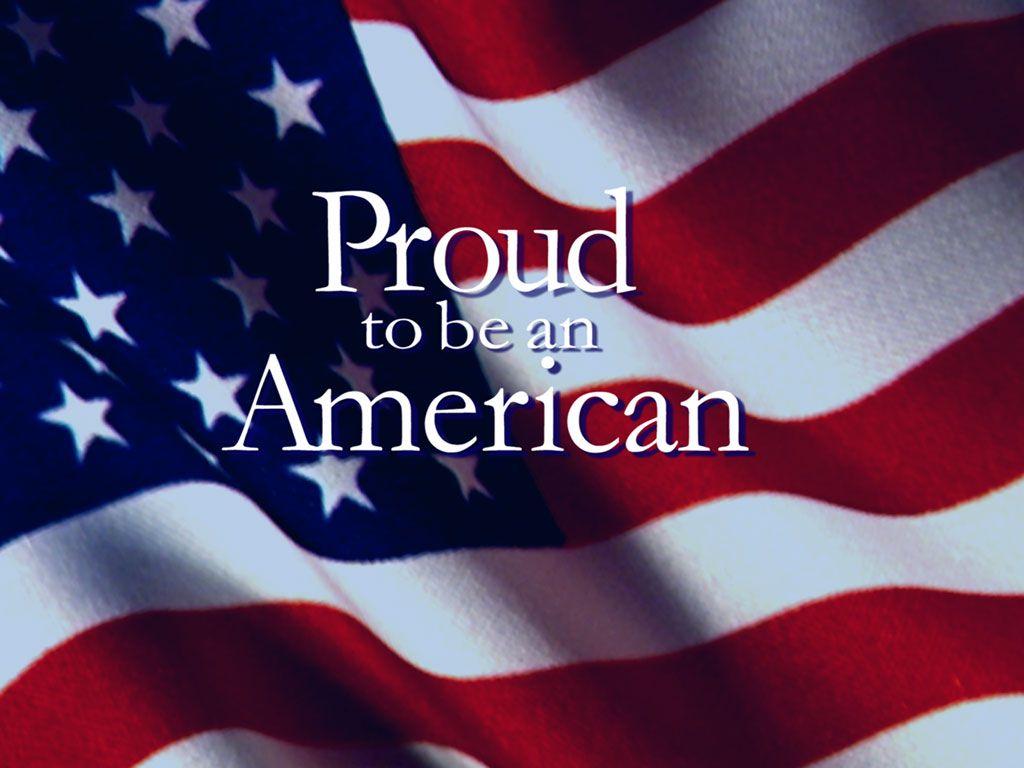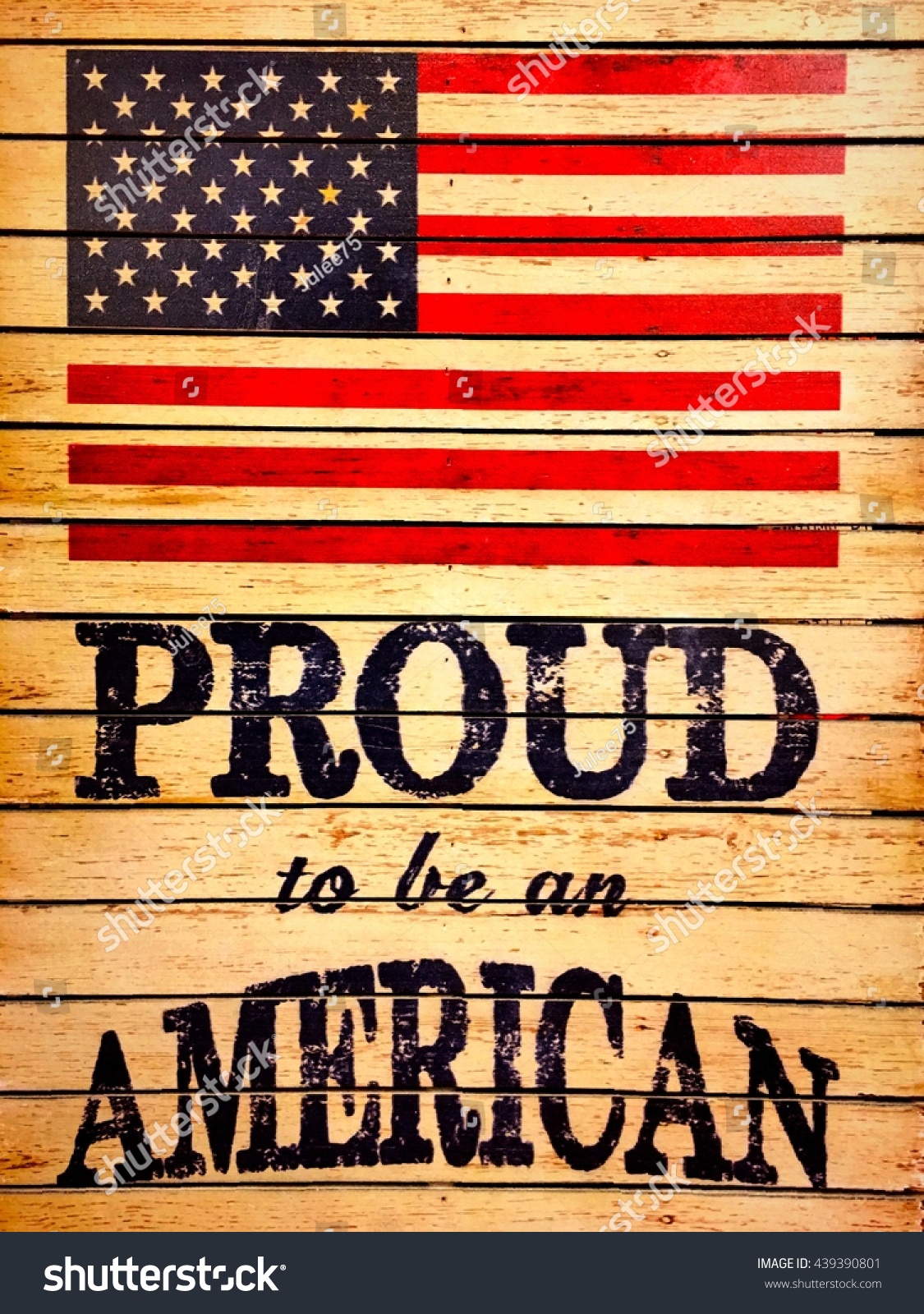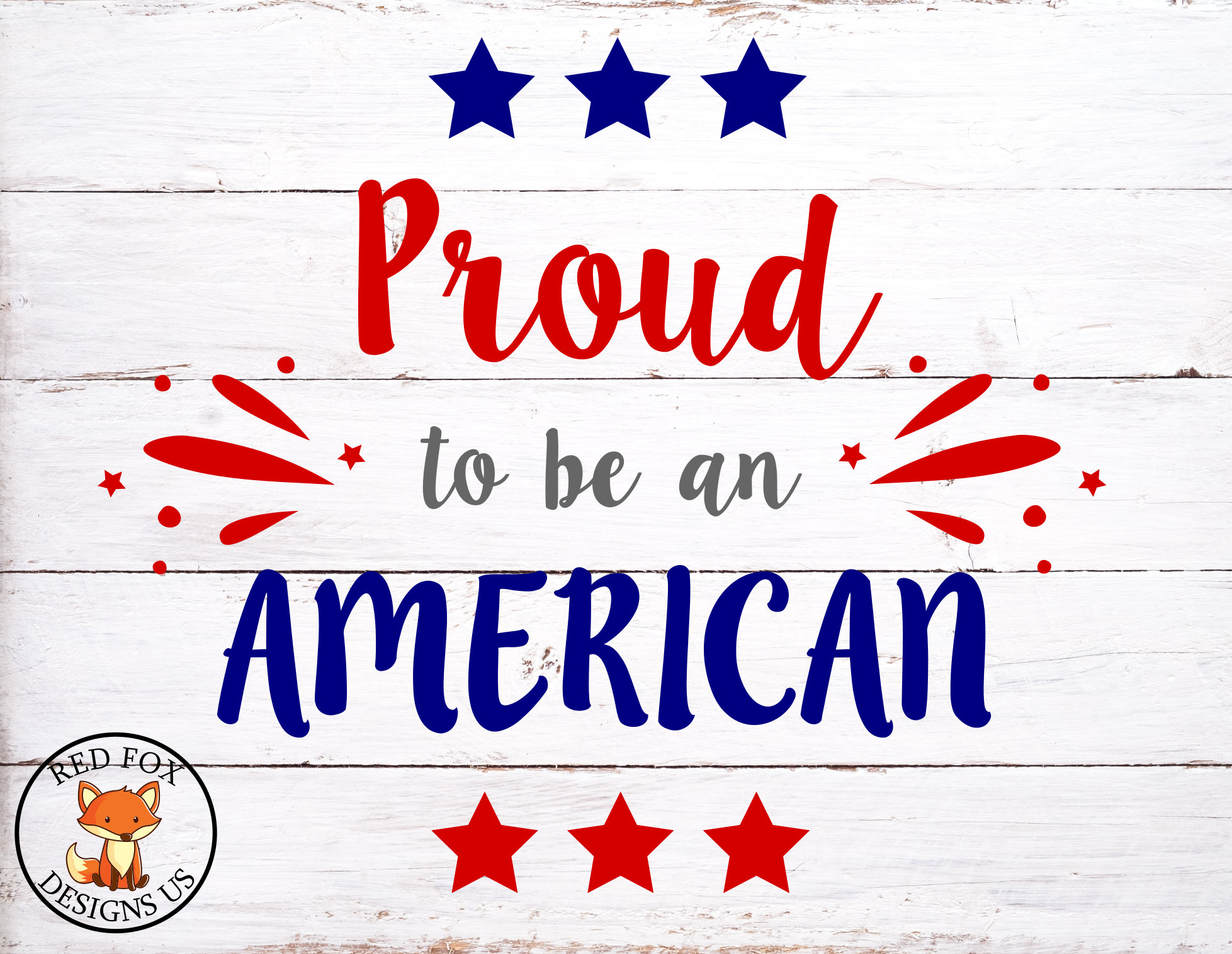Proud To Be An American - A Deeper Look
For many, the sentiment of being proud to be an American carries a lot of different meanings, and for some, it is a feeling that just doesn't quite click. It's a concept that can feel a bit hard to grasp, like trying to understand something that others seem to feel so strongly. This idea of national pride, it turns out, is not a simple, one-size-fits-all kind of thing, and actually, people have very varied thoughts about it.
You see, what it means to truly connect with one's country, to feel that sense of belonging or even a deep admiration for it, can be shaped by so many personal experiences. It's not just about where you happened to be born, or really, about any single moment in time. Instead, it’s a feeling that shifts and changes, depending on what you’ve seen, where you’ve been, and how things are unfolding around you.
This conversation about being proud to be an American isn't always straightforward; it holds a lot of different viewpoints, some of which might even seem to stand in opposition to each other. It includes moments of joy, surely, but also, quite often, moments of sadness or even a kind of disappointment. It's about looking at the country, its past, and its present, and figuring out what that means for your own personal connection to it, more or less.
Table of Contents
- What Does "Proud to be an American" Truly Mean?
- How Do Personal Experiences Shape Our Feelings About Being "proud to be an American"?
- Are Immigrants More "proud to be an American" Than Others?
- Can You Love Your Country Without Being "proud to be an American"?
What Does "Proud to be an American" Truly Mean?
For some folks, that whole idea of being deeply proud just for being an American, it's a feeling that just doesn't quite click. It's like trying to grasp something that seems a bit out of reach, you know? There are people who honestly say they never really understood the culture around being proud to be an American. It’s not that they don't appreciate the country, but the specific concept of national pride just doesn't resonate in the same way it might for others.
And then, there are those who feel a real disconnect, especially when they look at what's happening right now across the country. They might say they are not proud being an American because of what's going on in America today. This isn't about a lack of affection for the land itself, but rather a reaction to current events and societal shifts. It's a sentiment that comes from observing things that feel, well, a little bit wrong or out of place.
There's a real sense of sorrow, too, for many, witnessing how things have shifted. It's like watching a once very prosperous place, a nation that was once known for having so much, change into something that feels quite different, perhaps less abundant, in some respects. This feeling of sadness about how the country has changed dramatically from what some remember as a richest country in the world to something else, is a deeply personal experience for those who hold it.
Personal Views on "proud to be an american"
When you talk about being proud to be an American, it's not always about hating the country if you don't feel that specific kind of pride. It's more about thinking it's kind of silly to have national pride just because you were born somewhere. This perspective suggests that pride should perhaps be earned, or tied to actions and values, rather than simply a matter of birth. It’s a thought that many people share, actually.
There are individuals who will tell you, quite plainly, that they are not proud to be from the US. This feeling can stem from a variety of sources. For some, it’s about being ashamed of our politics and the way we act on the world stage, or even just among ourselves. It's a feeling that comes from a deep concern about the actions and decisions made by those in positions of authority, and how those actions reflect on everyone who lives here.
This sense of shame can also extend to how others see us. There's a concern about the perception of Americans by people in other parts of the world. It’s a feeling of being ashamed at how greedy we all are, a perceived trait that some believe has become a defining characteristic of the nation. These feelings are very real for those who experience them, and they shape their overall connection to the idea of being proud to be an American.
Some people remember a time when they felt a need to put on a show of being proud to be an American. When they were a child and living in the USA, they would go through the motions like they were a proud American. But as they grew older, by the time they were a teen and to this day, they can honestly say they never really felt that way. It’s like an act they performed, not a genuine feeling from the heart, you know?
How Do Personal Experiences Shape Our Feelings About Being "proud to be an American"?
The way people feel about being proud to be an American is deeply tied to their personal experiences, and this is especially true for those who have seen a lot of the world. As an American who has lots of naturalized citizens as friends, as well as having traveled to and/or lived in 18 countries other than the US, one can truly say that the individuals who truly understand the country are those who have a broader view. This kind of exposure, you see, really changes how you look at your own home.
When you've spent time outside your own borders, you get a different perspective on what it means to be from the US. It's like seeing your own house from a distance; you notice things you never did when you were always inside. This kind of distance allows for a clearer, perhaps more objective, view of both the good and the areas where things could be better. It informs your sense of what being proud to be an American really means.
This broader view often leads to a more nuanced understanding of national identity. It’s not just about waving a flag or saying certain words; it’s about understanding the complex interplay of history, culture, and current events. For many, this deeper insight means their pride, or lack thereof, is rooted in something much more substantial than just a simple declaration. It’s a feeling that’s been shaped by a lot of learning and living, you know.
Travel and "proud to be an American" Perspectives
Travel, in a way, opens your eyes to what others experience, and it can certainly shift your perspective on your own country. When you meet people from different places, you begin to see America through their eyes, too. This can be both enlightening and, at times, a little bit challenging, as you might discover perceptions that are quite different from your own. It helps to shape your thoughts on being proud to be an American.
Living in other countries, or even just visiting them, provides a unique lens. You see how different governments operate, how different societies handle their problems, and how people in various parts of the world live their daily lives. This comparison, naturally, makes you reflect on your own country’s strengths and weaknesses, and it can really influence whether you feel that surge of national pride, or perhaps something else entirely.
It's interesting how some people might say, "Yep, proud American, no apologies." This is a straightforward statement of conviction, and it shows a strong sense of national identity. But then, they might also add a thought like, "But if I’d been born in Canada, I’d be a proud Canadian." This suggests that for some, national pride is more about the place you belong to, rather than something inherently unique to one particular nation. It's a feeling of connection to your homeland, wherever that may be, more or less.
That said, some people are not a fan of the ubiquitous flag draping everywhere all the time, all over the place. This is a common sentiment among those who might feel that such displays, while meant to show patriotism, can sometimes feel a bit excessive or even performative. It’s a matter of personal taste, of course, but it speaks to different ways people choose to express, or not express, their connection to their country.
Are Immigrants More "proud to be an American" Than Others?
It's interesting to consider how different groups of people feel about being proud to be an American. The actual answer, some might suggest, is that immigrants are just as proud, if not more so, than those who were born here. This idea challenges some common assumptions and points to a deeper appreciation that newcomers might have for their adopted home. It’s a perspective that certainly makes you think, you know.
For example, there was this survey by the Cato Institute that showed some compelling numbers. In 2014, for instance, it found that 75% of citizen immigrants felt proud, compared to 69% of all citizens. This suggests a slightly higher level of national pride among those who chose to become citizens, perhaps because they have actively sought out and worked for their place in the country. It’s a pretty telling statistic, actually.
This difference in percentages, though seemingly small, points to a significant point: those who have gone through the process of becoming a citizen often have a very deep sense of connection and appreciation for the country. They have made a conscious choice to be here, to contribute, and to become a part of the nation. This choice, you see, can foster a profound sense of belonging and, quite naturally, a strong feeling of being proud to be an American.
Data and "proud to be an American" Sentiments
The numbers from surveys like the one mentioned give us a little peek into how different groups within the population feel about their country. They provide a factual basis for discussions about national pride, moving beyond just personal anecdotes. It helps to illustrate that the feeling of being proud to be an American isn't uniform across everyone living here.
When we look at these figures, it becomes clear that the immigrant experience often involves a journey that culminates in a deep sense of attachment to the United States. For many, becoming a citizen is the fulfillment of a long-held dream, a chance for a new beginning, and this can certainly lead to a very strong feeling of pride. It’s a testament to the idea of opportunity, in some respects.
This kind of data helps us to understand the varied feelings that exist concerning national identity. It shows that pride isn't just about being born somewhere; it can also be about the choices you make, the opportunities you find, and the life you build. So, when people talk about being proud to be an American, it's worth remembering that for many, that pride comes from a very personal and often hard-won place.
Can You Love Your Country Without Being "proud to be an American"?
It's entirely possible to have a deep affection for your country without necessarily feeling that specific kind of national pride. Some people might say, "I know that the federal government has done some jacked up stuff even in living memory, and Virginia has a dark history as well." This kind of awareness, you see, doesn't erase love for the land or its people, but it does complicate the idea of feeling outright pride in everything about the nation's past or present.
This perspective highlights a distinction between loving the place you call home and being proud of every action taken by its governing bodies or historical figures. It’s about separating the land, the culture, the communities, from the political decisions or historical missteps that have occurred. You can cherish the beauty of the landscape, the spirit of its people, and the shared traditions, even while acknowledging difficult truths. It's a nuanced way of feeling, you know.
For many, their connection is to their culture, to their family’s traditions, and to the immediate community around them. They might say, "I am proud of my culture for the most part and proud to be…" and then pause on the "American" part. This suggests that personal identity and cultural heritage can be a strong source of pride, independent of, or sometimes even in contrast to, a broader nationalistic feeling. It’s a very personal sort of connection, really.
Beyond "proud to be an American" - Culture and Identity
The idea of national pride can sometimes overshadow the rich tapestry of individual cultures that exist within a country. People often find their strongest sense of belonging and pride in their own family's background, their ethnic heritage, or the specific regional customs they grew up with. This connection to a smaller, more intimate cultural group can be a much more tangible source of pride than a vast national identity. It’s a feeling that’s deeply rooted, you know.
For example, someone might feel a strong sense of pride in their family's history of perseverance, or in the traditions passed down through generations. This pride isn't about flags or anthems; it's about personal stories, shared experiences, and a sense of continuity. It's a way of honoring where you come from, and it’s a very real kind of pride that exists for many people.
So, when someone says they never have understood proud to be an American culture, it doesn't mean they don't appreciate the opportunities or the freedoms the country might offer. It just means that their sense of self-worth and belonging comes from a different place. It's a way of saying that pride, for them, is about something more personal, something that feels a bit closer to home, actually.
And again, that sentiment about not being a fan of the ubiquitous flag draping everywhere all the time, all over, ties into this. It's not a rejection of the country, but perhaps a rejection of certain expressions of patriotism that don't resonate with their own, more personal, sense of connection. It’s about finding your own way to feel about your place in the world, and that’s perfectly okay, too.

Proud to Be an American Wallpapers - Top Free Proud to Be an American

American Flag Proud Be American On Stock Photo (Edit Now) 439390801

Proud to Be an American Svg Home of the Free Because of the - Etsy